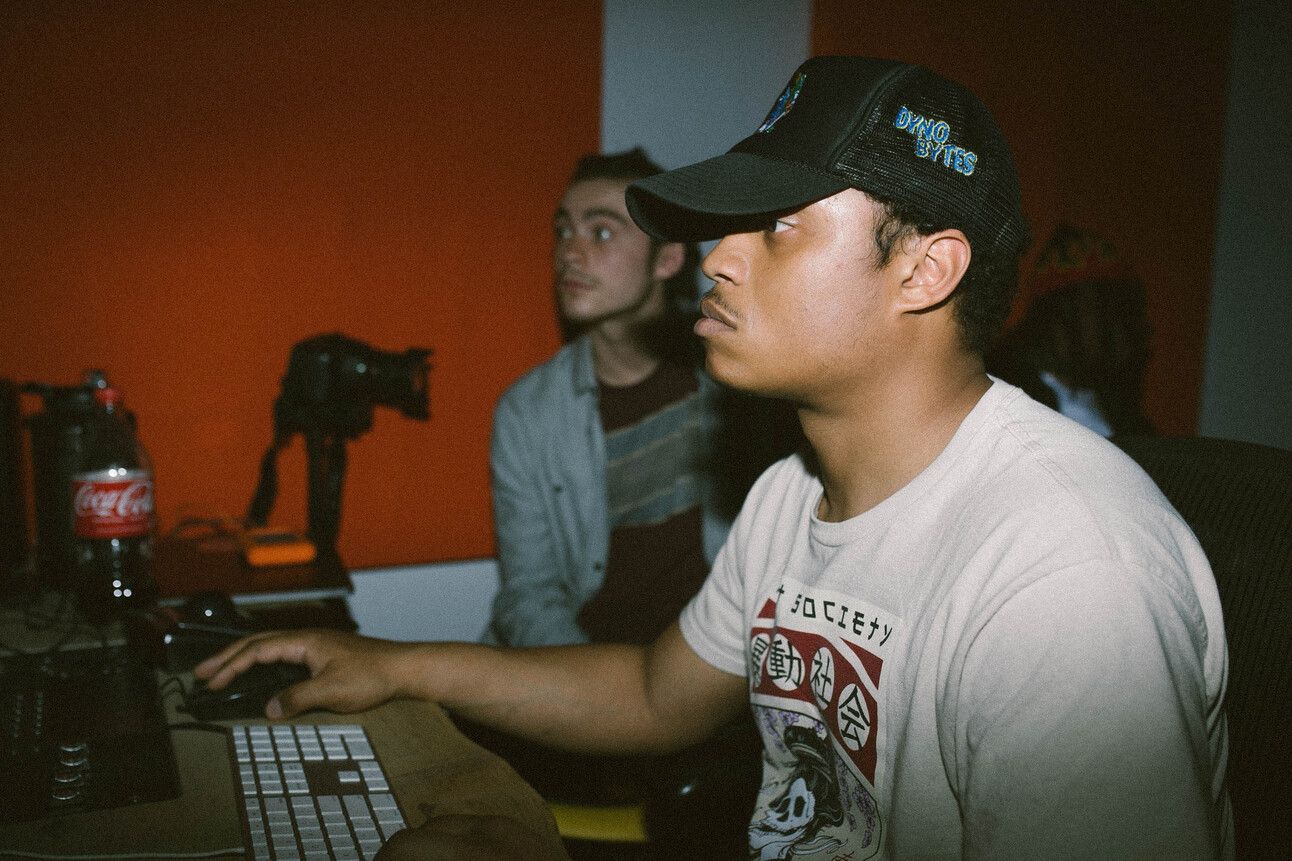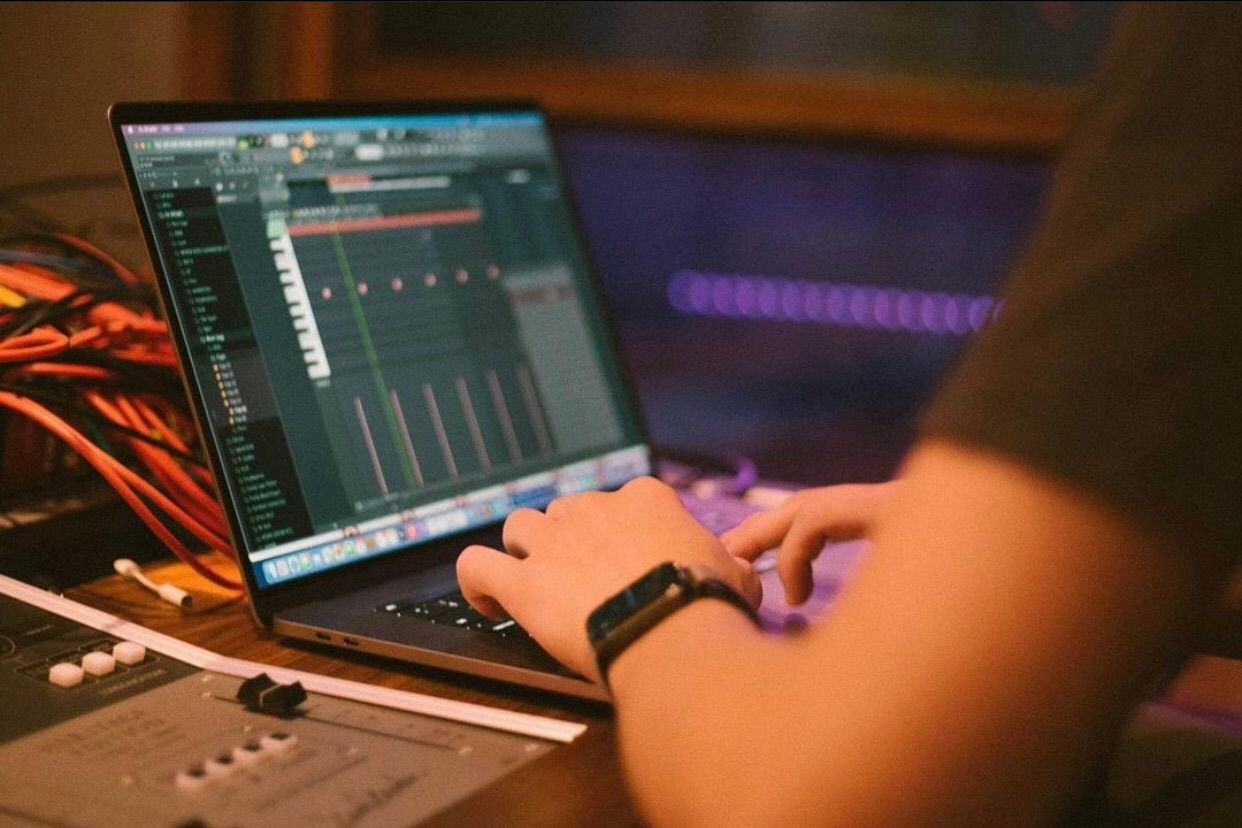Recording your first song is an exciting and important milestone in your music career! Quality tracks, whether instrumental or vocal, are key to sounding professional. Keep reading to learn about recording for the first time and taking your music to the next level.

Set Up a Home Studio
It’s safe to say you won’t be recording final tracks at your home studio, but as a musician, a creative space at home is almost non-negotiable.
Create a workspace at home where you can write and experiment with sound. Choose a room with minimal background noise and decent acoustics. Ideally, you want a room that doesn’t sound too “boxy” or echoey, but also isn’t too dead-sounding.
If possible, treat the room with things like foam panels, blankets, or pillows to absorb sound. Even DIY solutions can help reduce unwanted reverberations and noise. Ensure the recording space is isolated from outside noise. Close windows, doors, and keep the room quiet.
Get the right equipment for your home studio. You don’t have to break the bank but if you’re serious about making music, expect to invest a little bit. It matters that you have good speakers, a mic, etc..

Now it’s time for action. Have a clear idea of your song’s structure (verse, chorus, bridge). Have a sense of the instruments or sounds you want to use. Will it be just vocals and guitar? A full band? More electronic or minimalist? Consider how all the elements will work together.
If you’re recording vocals, warm up before recording. You don’t want to strain your voice during the session.
Magic is made in your home studio. You’ll rent a recording studio with experts and top-tier equipment to record songs for release.
Start Recording a Song
Start by recording the core of the song. If it’s a full-band recording, begin with a rhythm section (like drums or guitar) or a basic chord progression. For electronic music, start with your beat or bassline. Vocals should be natural and true to the song’s emotion.
If you’re recording multiple instruments, use a metronome to stay in sync. This is important if you’re recording one instrument at a time and layering others on top.

After recording your main instruments and vocals, go back and add more parts like harmonies or effects. Don’t feel the need to get everything perfect in one go. Record sections of the song and build on them. You can always re-record parts that don’t sound right, then add or remove effects as you see fit.
End Your Session
Make sure your song sounds cohesive. Listen to it on different devices (headphones, car speakers, etc.) to ensure it sounds good across the board.
Mastering is the final step to ensure your song sounds polished and professional. Adjust the overall EQ, compression, and loudness. Some artists choose to master their songs themselves, while others hire a mastering engineer for a more polished result. (As mentioned, when you rent a professional recording studio in the future, you’ll probably get help from a sound engineer instead of having to master songs yourself–if you prefer.)
As you work, save different versions of your project ( "song-v1", "song-v2") so you can go back to previous versions if needed. Back up everything, especially the raw audio files, to an external drive or cloud storage.
Recording can be a long and sometimes frustrating process, but it’s also incredibly rewarding. Don’t rush, take your time, and enjoy the journey of bringing your song to life. Learn from mistakes, and don’t be afraid to experiment with new techniques as you go.

Don’t Stop Creating
Making music is a continuous learning process. Keep honing your craft, experimenting with new sounds, and challenging yourself. Get feedback from other musicians, friends, and your audience to learn where you can improve.
Small, manageable goals can help you stay motivated. Tell yourself, "I will release a new track every month" or "I will write a song every week" and make it happen.
When you’re ready to record final tracks, consider renting a recording studio nearby. Professional or commercial studios offer expert help and quality equipment to make you sound better than you imagined. Bedroom studios don’t always do the trick.
The music industry can be competitive and sometimes discouraging, but persistence is key. Stay dedicated to your craft and keep evolving. Don’t give up if you don’t see immediate success. Many successful artists faced years of struggle before breaking through.
